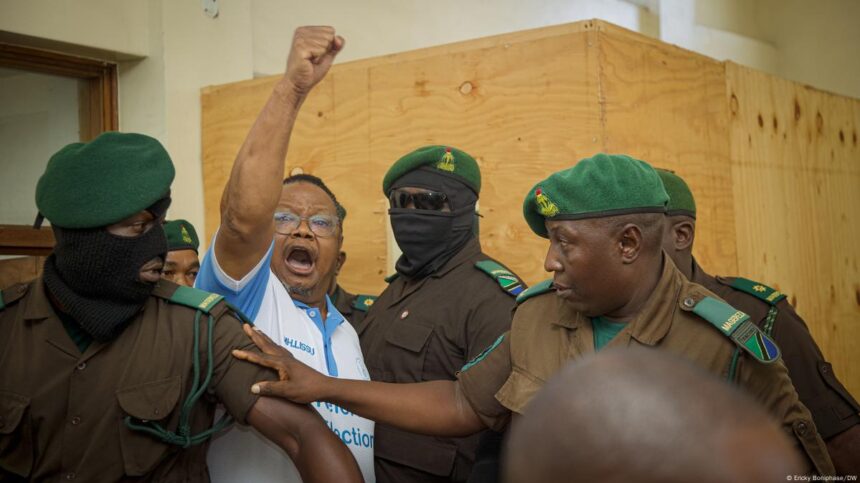Introduction
Tanzania’s main opposition leader, Tundu Lissu, appeared in court on Monday in Dar es Salaam, weeks after his arrest on treason charges. With tensions escalating and the government’s stance hardening, the case has become a lightning rod for debates around political freedom, human rights, and regional diplomacy.
1. Tundu Lissu’s Defiant Court Appearance
Appearing for the first time since his 9 April arrest, Lissu raised his fist and told supporters: “You will be fine. You should not fear.” The symbolic gesture of resistance echoed loudly across the crowd, hundreds of whom gathered outside Kisutu Magistrate’s Court despite heavy police presence.
2. Charges That Carry the Death Penalty
Lissu faces two serious charges: treason and publishing false information online. The latter includes allegations that he incited rebellion and accused the police of electoral misconduct. If convicted, Lissu could face capital punishment.
3. “No Reforms, No Election” – The Rallying Cry
His arrest followed his statement demanding electoral reforms ahead of Tanzania’s October general elections. Lissu, who leads the opposition Chadema party, said the elections should not proceed without substantial changes to electoral laws and transparency.
4. Virtual Hearings Rejected by Legal Team
The court initially sought to conduct hearings virtually. However, Lissu’s legal team objected, citing the need for transparency and due process. The court eventually relented and began physical hearings under public scrutiny.
5. Kenyan Leaders Deported in Solidarity Crackdown
The trial attracted international attention when prominent Kenyan figures, including former Justice Minister Martha Karua and ex-Chief Justice Willy Mutunga, were deported from Tanzania. Karua said she was prevented from attending the trial, prompting widespread condemnation from East African human rights groups.
6. President Samia Suluhu Hassan’s Stern Message
President Samia Suluhu Hassan appeared to back the clampdown, stating: “Let’s not give them a chance—they’ve already created chaos in their own country.” She warned against allowing foreign activists to “interfere with our internal affairs.”
7. Growing Concerns Over Tanzania’s Democracy
The Lissu case has intensified global scrutiny of Tanzania’s democratic trajectory. His Chadema party has been barred from participating in the October elections after refusing to sign a disputed code of conduct. This comes amid reports of abductions, killings, and arrests of other opposition figures.
Conclusion
As Tanzania’s democracy faces mounting pressure, Tundu Lissu’s case symbolizes broader struggles for political freedom in the region. The court is scheduled to hear the case again on 2 June. For now, the world watches closely, as regional tensions grow and international voices call for justice, transparency, and democratic reforms in Tanzania.
To understand the broader concerns, view Human Rights Watch’s report on political repression in Tanzania.
Related Reading: African Democracy Under Threat: Recent Crackdowns on Opposition Leaders


